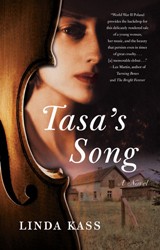January 1, 2013
Praised for her signature ability to breathe life into the narratives of history’s most compelling women, Melanie Benjamin presents here an enthralling novel based on the story of the extraordinary real-life Blanche Auzello, a Jewish-American woman who forged papers to create a new life for herself abroad, and who secretly worked for the Resistance, all while playing hostess to the invading Germans at the legendary Ritz.




